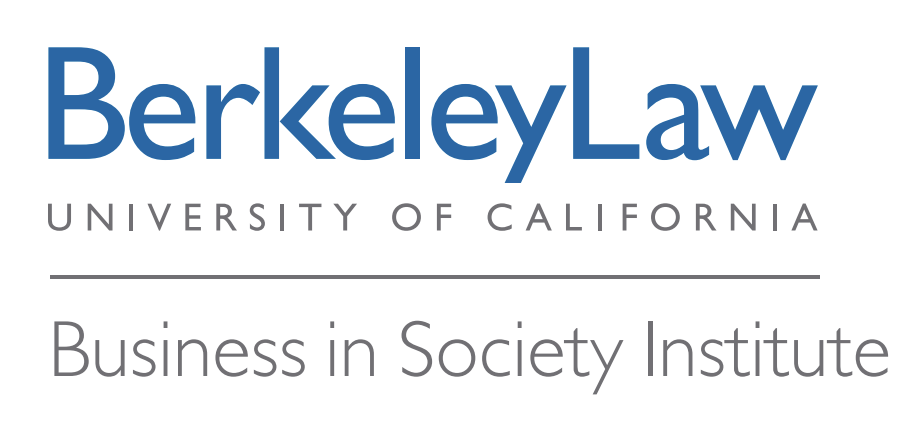Author: Micaela Cervantes | UC Berkeley School of Law | J.D. Candidate 2020 | Posted October 3rd, 2018 | Download PDF.
The perception of a corporation’s role in society shifted after Milton Friedman established his shareholder primacy theory in 1970.[1] Friedman wrote that the corporation’s primary purpose is to maximize shareholder profits.[2] Although, Friedman’s theory prevailed for many years, it has recently received criticism from both lawyers and politicians.[3] Opponents of Friedman’s theory voice concern that shareholder primacy is not sustainable and has negative effects on the stakeholders and on the community.[4] In lieu of shareholder primacy, critics emphasize the need for stakeholder theory. Stakeholder theory states that “managing for stakeholders is about creating as much value as possible for stakeholders, without resorting to tradeoffs.”[5] Critics agree that shareholder primacy theory has lasting negative effects on society and that stakeholder theory is more sustainable. However, they disagree about the appropriate way to implement change through stakeholder theory. Some suggest a legislative solution and others suggest a private solution.
Senator Elizabeth Warren proposes a legislative solution through her Accountable Capitalism Act (“the Act”). Under the Act, American corporations with more than one billion in annual revenue will be required to get a federal corporate charter.[6] Further, the new charter would require corporate directors to consider the interests of all major corporate stakeholders in company decision.[7] In addition, the employees would elect at least forty percent of the directors and the directors and officers would not be allowed to sell company shares within five years of receiving them or within three years of a company stock buyback. [8]
On the other hand, Martin Lipton of Wachtell, Lipton, Rosen & Katz proposes a private solution. In 2016, Lipton partnered with the World Economic Forum to create this private solution titled The New Paradigm.[9] Under The New Paradigm, corporate governance is seen as a collaboration among corporate parties. On one end, corporations develop and pursue long term goals. On the other end, investors and asset managers work together to understand the corporation’s goals and communicate their input to the corporation in order to receive the investors’ long-term support.[10] Further, Lipton suggests that the New Paradigm is a realistic expectation, that may preempt the Act, given that the Investors Stewardship Group recognizes all asset managers have a fiduciary duty to conduct themselves in a manner that is in the best interest of stakeholders and society in general.[11]
Although both solutions are aimed at eliminating shareholder primacy in favor of stakeholder theory, Senator Warren’s proposal is likely to be more successful in achieving its goals for three reasons. First, under the Act, companies would be required to consider stakeholders’ interests. Second, directors and officers would be protected from breach of fiduciary duty claims when they consider stakeholders interests. Third, the Act details concrete steps toward achieving stakeholder theory.
Under the Act, companies would be required to consider stakeholders’ interests. This is more effective than Lipton’s New Paradigm, where companies permissively initiate this practice. Although Lipton advocates that the New Paradigm is a realistic expectation given the statements made by the Investors Stewardship Group, the New Paradigm was published in September 2016 and has not been implemented widely by corporations. Further, under the Act, incorporation of stakeholder theory would be expedited. Thus, requiring corporate participation will ensure that corporations consider stakeholders’ interests.
Next, the Act is a more effective solution because directors and officers would no longer fear breach of fiduciary duty claims. Directors and officers would have the freedom to make decisions in favor of stakeholder interests. If legislation was not implemented, directors and officers might feel deterred from putting stakeholders’ interest first, especially when stakeholders’ interests and shareholders’ interests do not align. Without threat of repercussions, directors and officers can make strategic decisions in favor of achieving the long-term goals of the corporation.
Finally, Senator Warren’s legislation is a preferable solution because it includes concrete steps toward achieving stakeholder theory. Under the Act, employees would elect forty percent of the directors. Allowing employees to directly elect directors ensures that their interests will be considered. Further, directors would focus on appeasing the stakeholders, not the shareholders. The Act also prohibits selling shares within five years. Although five years is still a relatively short period of time, shareholders will be forced to consider the long-term goals of the company. Although both Lipton and Senator Warren’s solutions recognize a problem with shareholder primacy, Senator Warren’s legislation is more likely to achieve the goals of stakeholder theory.
Endnotes
[1] Elizabeth Warren, Companies Shouldn’t Be Held Accountable Only to Shareholders, Wall Street Journal (Aug. 14, 2018, 7:01PM), https://www.wsj.com/articles/companies-shouldnt-be-accountable-only-to-shareholders-1534287687?mod=article_inline.
[2]Milton Friedman, The Social Responsibility of Business is to Increase its Profits, The New York Times Magazine, September 13, 2013.
[3]Elizabeth Warren, Companies Shouldn’t Be Held Accountable Only to Shareholders, Wall Street Journal (Aug. 14, 2018, 7:01PM), https://www.wsj.com/articles/companies-shouldnt-be-accountable-only-to-shareholders-1534287687?mod=article_inline.; and Martin Lipton, Corporate Governance – The New Paradigm: A Better Way Than Federalization, Harvard Law School Forum on Corporate Governance and Financial Regulation (Aug. 20, 2018), https://corpgov.law.harvard.edu/2018/08/20/corporate-governance-the-new-paradigm-a-better-way-than-federalization/.
[4] id.
[5] R. Edward Freeman, Managing for Stakeholders, (July 31, 2008), https://ssrn.com/abstract=1186402.
[6] Elizabeth Warren, Companies Shouldn’t Be Held Accountable Only to Shareholders, Wall Street Journal (Aug. 14, 2018, 7:01PM), https://www.wsj.com/articles/companies-shouldnt-be-accountable-only-to-shareholders-1534287687?mod=article_inline.
[7] id.
[8] id.
[9] Martin Lipton, Corporate Governance – The New Paradigm: A Better Way Than Federalization, Harvard Law School Forum on Corporate Governance and Financial Regulation (Aug. 20, 2018), https://corpgov.law.harvard.edu/2018/08/20/corporate-governance-the-new-paradigm-a-better-way-than-federalization/.
[10] id.
[11] id.
